
Key opinion leaders in the field of prostate cancer close out their discussion by sharing excitement for future evolutions in the setting of hormone-sensitive disease management.

Your AI-Trained Oncology Knowledge Connection!


Key opinion leaders in the field of prostate cancer close out their discussion by sharing excitement for future evolutions in the setting of hormone-sensitive disease management.

Expert panelists consider the possibility of taking a break from treatment given a patient’s response to therapy along with other unique management strategies in the setting of metastatic hormone-sensitive prostate cancer.

In a third clinical scenario of metastatic hormone-sensitive prostate cancer, panelists discuss oligometastatic disease, radiation therapy, and the potential role for PSMA-PET scans.

Centering focus on a second clinical scenario of metastatic hormone-sensitive prostate cancer, key opinion leaders identify treatment options based on variations in presentation.

Shared insight on strategies to monitor patient response to therapy and select second-line treatment when hormone-sensitive prostate cancer progresses.

After nuancing quality of life data with chemotherapy in metastatic hormone-sensitive prostate cancer, panelists consider the value of multidisciplinary care.

Focused discussion on the respective roles of doublet and triplet regimens in patients newly diagnosed with metastatic hormone-sensitive prostate cancer.

Panelists reflect on molecular markers and other clinical factors that aid in the selection of best therapy for a patient with metastatic hormone-sensitive prostate cancer.

Key opinion leaders in the field of prostate cancer management consider optimal molecular testing practices in a patient with metastatic hormone-sensitive disease.
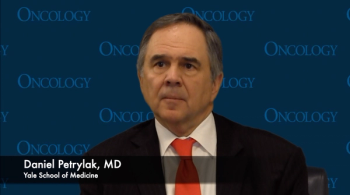
At the 15th Annual Interdisciplinary Prostate Cancer Congress® and Other Genitourinary Malignancies, Daniel P. Petrylak, MD, reflects upon mentorship during his training to become an oncologist.

At the 15th Annual Interdisciplinary Prostate Cancer Congress® and Other Genitourinary Malignancies, Daniel P. Petrylak, MD, spoke about ongoing trials may hold promise for the treatment of patients with bladder cancer.

At the 15th Annual Interdisciplinary Prostate Cancer Congress® and Other Genitourinary Malignancies, Daniel P. Petrylak, MD, spoke about how immunotherapy has influenced treatment for patients with bladder cancer.

Daniel Petrylak, MD and Donald Barry Boyd, MD, MS, examine real-world data presented in the recent publication, “Avelumab first-line maintenance in locally advanced or metastatic urothelial carcinoma: Applying clinical trial findings to clinical practice.”
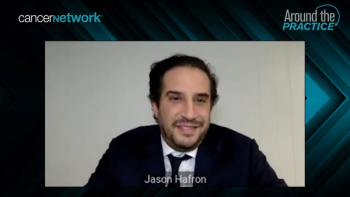
Jason M. Hafron, MD, CMO, and Oliver Sartor, MD, share their approach for the optimal management of mCRPC through genetic testing.

Daniel P. Petrylak, MD, leads the discussion on sequencing treatment for a patient with mCRPC, such as in case 2, who progresses on docetaxel therapy.
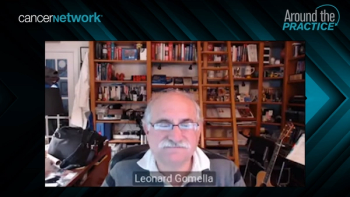
Prostate cancer experts review the use of PSMA PET/CT imaging and Axumin imaging for patients with metastatic castration-resistant prostate cancer.

Raoul S. Concepcion, MD, presents the case of a 64-year-old-man with mCRPC, and Jason M. Hafron, MD, CMO, leads the discussion on the optimal treatment approach for the given case.

Daniel P. Petrylak, MD, leads the discussion on approaching treatment of high-volume metastatic castration-naïve prostate cancer.

A panel of experts in prostate cancer examine the use of conventional imaging and PSMA PET/CT and the impact on their approach to the management of mCNPC.

Dr Raoul S. Concepcion presents the case of a 69-year-old man with metastatic castration-naïve prostate cancer (mCNPC), and the panel shares their personal approaches to treatment.

Raoul S. Concepcion, MD, FACS, poses polling questions for the audience’s medical specialty and the percent of patients they receive with prostate cancer.

ONCOLOGY® editorial board member E. David Crawford, MD, and colleagues, propose a new model for guiding the treatment of prostate cancer that focuses on a “transitional state,” which occurs during the interval of progression to metastatic castration-resistant prostate cancer.
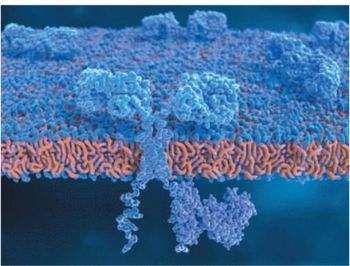
In this article, we review the current use of and future direction for genetic testing and tumor profiling in patients with metastatic castration-resistant prostate cancer.

Here, we review the current use and future direction of novel therapeutic targets in the treatment of castration-resistant prostate cancer.

An 83-year-old man was diagnosed with multiple low-grade transitional cell carcinomas over a 6-year period. A surveillance cystoscopy in year 7 showed high-grade noninvasive papillary urothelial carcinoma in the bladder trigone. A CT urogram showed a soft-tissue mass with diffuse enhancement in the lower pole of the left kidney, concerning for malignancy.

This article will review select novel targets and approaches relevant to urothelial cancer.

As part of our coverage of ASCO's Annual Meeting, we discuss the role of chemotherapy in prostate cancer, as well as study results on novel targeted approaches and agents in development for prostate cancer that will be presented at the meeting.

In this review we will outline an approach to sequencing new therapies for metastatic castration-resistant prostate cancer (CRPC), with particular attention paid to the biology of CRPC.
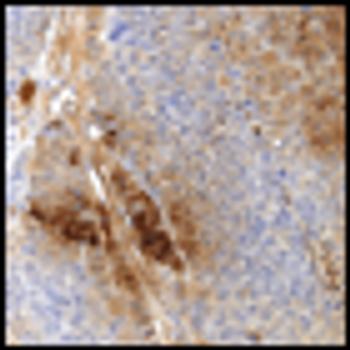
A 55-year-old woman with a history of metastatic melanoma in remission for 8 years presented to the emergency department with gross hematuria. A CT scan, ordered because the patient was in menopause, demonstrated a bladder tumor.

This article will present current information about alpha-pharmaceuticals, a new class of targeted cancer therapy for the treatment of patients with CRPC and bone metastases. It will review preclinical and clinical studies of the experimental radiopharmaceutical radium-223 chloride (Alpharadin).

Published: April 28th 2023 | Updated:

Published: May 5th 2023 | Updated:

Published: May 19th 2023 | Updated:

Published: December 9th 2021 | Updated:
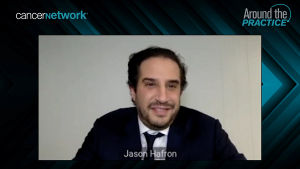
Published: December 9th 2021 | Updated:
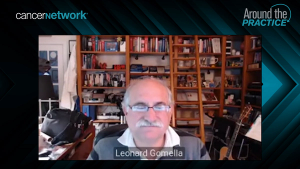
Published: December 2nd 2021 | Updated: